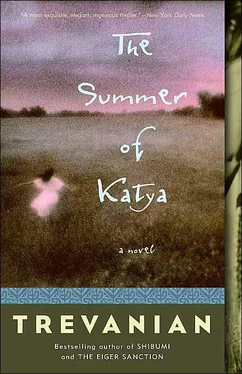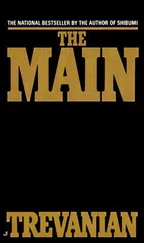Rodney Whitaker - The Summer of Katya
Здесь есть возможность читать онлайн «Rodney Whitaker - The Summer of Katya» весь текст электронной книги совершенно бесплатно (целиком полную версию без сокращений). В некоторых случаях можно слушать аудио, скачать через торрент в формате fb2 и присутствует краткое содержание. Город: New York, ISBN: , Издательство: Crown Publishing Group, Жанр: Триллер, Современные любовные романы, на английском языке. Описание произведения, (предисловие) а так же отзывы посетителей доступны на портале библиотеки ЛибКат.
- Название:The Summer of Katya
- Автор:
- Издательство:Crown Publishing Group
- Жанр:
- Год:неизвестен
- Город:New York
- ISBN:1400098041
- Рейтинг книги:4 / 5. Голосов: 1
-
Избранное:Добавить в избранное
- Отзывы:
-
Ваша оценка:
- 80
- 1
- 2
- 3
- 4
- 5
The Summer of Katya: краткое содержание, описание и аннотация
Предлагаем к чтению аннотацию, описание, краткое содержание или предисловие (зависит от того, что написал сам автор книги «The Summer of Katya»). Если вы не нашли необходимую информацию о книге — напишите в комментариях, мы постараемся отыскать её.
The Summer of Katya — читать онлайн бесплатно полную книгу (весь текст) целиком
Ниже представлен текст книги, разбитый по страницам. Система сохранения места последней прочитанной страницы, позволяет с удобством читать онлайн бесплатно книгу «The Summer of Katya», без необходимости каждый раз заново искать на чём Вы остановились. Поставьте закладку, и сможете в любой момент перейти на страницу, на которой закончили чтение.
Интервал:
Закладка:
“Ah… and what is the nature of your brother’s injuries?” I asked quickly.
“Well, he’s a bit scraped up, of course. And it could be that he has a broken clavicle. But there’s no concussion.”
I frowned. “I am impressed, Mlle Treville. You seem to have some knowledge of medicine.”
She shrugged and puffed air between slack lips in the way that peasants or street gamines dismiss some insignificant matter. “Not really.”
“But most people, and nearly all women, would have called the clavicle a collarbone.”
“One summer I developed an interest in anatomy, and I read several books. That’s all. There’s no mystery.”
How can I explain the implications of a young lady in the summer of 1914 admitting to an interest in anatomy? It would be as though one of today’s pert Modern Young Things were to confess to a fascination with pornography. The conventions of polite conversation did not admit the existence of the human body, much less its parts separately considered.
We had passed out of the park and were walking along the tree-lined central avenue of Salies towards the clinic. Two women on the other side of the street stopped to exchange whispers about the hatless girl walking brazenly with the young doctor. And indeed there was something in the vigor of Katya’s long, athletic stride that might be considered unladylike. It would not be exactly fair to say that ladies of that time minced, but certainly they did not stride along, as it was clearly infra dig to appear to have to get anywhere with urgency.
“How can you know your brother does not suffer from a concussion?” I asked.
“His eyes respond to light by a contraction of the pupil,” she answered with a tone suggesting an unnecessary statement of the obvious. “How else would one test for concussion?”
“How else indeed,” I said, a bit nettled. “I take it there was also a summer’s reading devoted to diagnostics?”
She stopped walking and turned to me, puzzled by the archness of my tone. Her eyes searched mine in a most disconcerting way, with an expression of sincere interrogation mixed with amusement, an expression I was later to find particular to her, and very dear to me. “I’ve been guilty of invading your domain of authority, haven’t I?” she said. “I am sorry.”
“Oh, no. It isn’t that at all,” I protested.
“Isn’t it?”
“Certainly not… well, yes frankly.” I grinned. “After all, I am supposed to be the wise old doctor, and you the distressed and admiring patient.”
She smiled. “I promise to be as distressed and admiring as possible the next time we meet.”
“Ah, that’s more like it.”
“And you must play the wise old doctor… well, the wise young doctor.”
“Young… but dignified.”
“Oh, yes, dignified to be sure. Tell me, would it damage your dignity to learn that we have walked past the clinic?”
“What? Ah! So we have. Pretending to forget my destination is a little ruse I use to test whether my companion is paying attention.”
“Very clever.”
“Thank you. Would you care to step in while I gather my things?”
“Thank you, no. I’ll wait for you here.”
I borrowed Doctor Gros’s sulky and we rode south out of town into the countryside where apple trees bordering the dirt road scented the noonday air with their ripening fruit. Despite my practice of rehearsing ideal conversations to myself and loading my statements until they dripped with wit and insight, I could think of nothing amusing to say. She, for her part, seemed uninterested in social chatter as she sat with her face lifted to the sun in evident pleasure. Twice she turned to me and smiled in a generous, impersonal way. She delighted in the warmth of the sun and the touch of the breeze created by the motion of the trap, and she smiled back at the moment that was giving her pleasure. I was included in that smile as though I were a likable, anonymous thing.
Failing to think of anything interesting or witty to say, I fell back upon the banal. “I take it you are not of the pays, Mademoiselle?” Her speech lacked the chanting twang and the sounded final e of the south.
“No.” She was silent for a moment, then she seemed to realize that a one-syllable answer was a bit brusque. “No, we came for the waters.”
“It must be inconvenient.”
She had already returned to her pleasurable reverie, so it was several moments before she said, “I’m sorry. You were saying?…”
“Nothing important.”
“Oh? I see.”
Half a minute passed in silence. “I simply suggested that it must be inconvenient.”
“What must be?”
I sighed. “Living so far from the village… being here for the waters and living so far from the village.” I sincerely wished I had not entered on this topic of conversation that neither interested her nor showed me to advantage.
“We prefer it, really.”
“I suppose you don’t have to come into town every day for your regimen of the waters, then.” I said this knowing perfectly well that she did not come in every day. Salies is a very small place, and I was a romantic young man with much leisure. If she came often to Salies, I would have seen her; and if I had seen her, I would certainly have remembered her.
“No, not every day. In fact…” She smiled a greeting to an old peasant we were passing on the road, and he lifted his chin in the crisp Basque salute that is as much dismissal as it is greeting. Then she turned again to me. “In fact, we don’t come in at all.”
“But…”
“When I told you we were here to take the waters, I was lying.”
“Lying?” I smiled. “Do you make a practice of lying?”
She nodded thoughtfully. “It’s often the easiest thing to do, and sometimes the kindest. It is true that we are here for reasons of health, and to avoid unnecessary questions I say we are taking the waters.”
“I see. But what—” I stopped short and laughed. “I was going to indulge in one of those unnecessary questions.”
She laughed with me. “I’m sure you were. Ah! We have arrived. That lane to the right.”
The grassy, rutted condition of the tree-lined lane attested to its long period of disuse before the Trevilles occupied the house. As we approached the ancient stone heap called Etcheverria we passed along the crumbling wall of a derelict garden grown rank with weeds among which a few volunteer flowers struggled in stunted bloom, reminders of the passing hand of man. Twice the horse jerked aside nervously.
“It’s haunted, you know,” she said with a smile.
“And you don’t mind living in a haunted house?”
“No, not the house. The garden. Local tradition says the garden is haunted.” She cocked her head thoughtfully and added, “Well, perhaps the house is haunted as well. Most houses are… in one way or another.”
“That’s an interesting observation. But Dr. Freud would contend that it is most people, not most houses, that are haunted… in one way or another.”
She nodded. “Yes, I know.”
I was genuinely surprised. And fascinated. “You have read Dr. Freud?”
“Yes. After I had learned what I wanted to know about anatomy.” She laughed. “One leads to the other, I suppose. First you learn how the various bits function, then you wonder why they bother to.”
We turned in at the sagging gate. It was not necessary to tie up the horse, as she was an experienced doctor’s mare used to standing calmly in the traces. By the time I walked around to offer her a hand down, Katya had already begun to descend on her own. My clumsy attempt to give un-needed assistance and her last-minute effort to accept the titular support of my guiding hand created a moment of awkward grappling that made us both laugh.
Читать дальшеИнтервал:
Закладка:
Похожие книги на «The Summer of Katya»
Представляем Вашему вниманию похожие книги на «The Summer of Katya» списком для выбора. Мы отобрали схожую по названию и смыслу литературу в надежде предоставить читателям больше вариантов отыскать новые, интересные, ещё непрочитанные произведения.
Обсуждение, отзывы о книге «The Summer of Katya» и просто собственные мнения читателей. Оставьте ваши комментарии, напишите, что Вы думаете о произведении, его смысле или главных героях. Укажите что конкретно понравилось, а что нет, и почему Вы так считаете.












